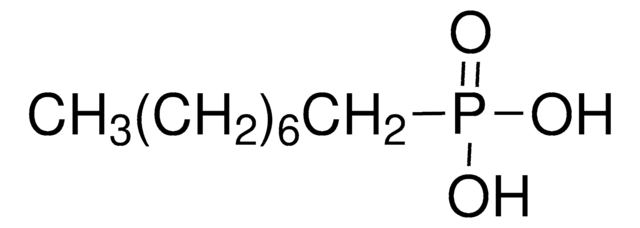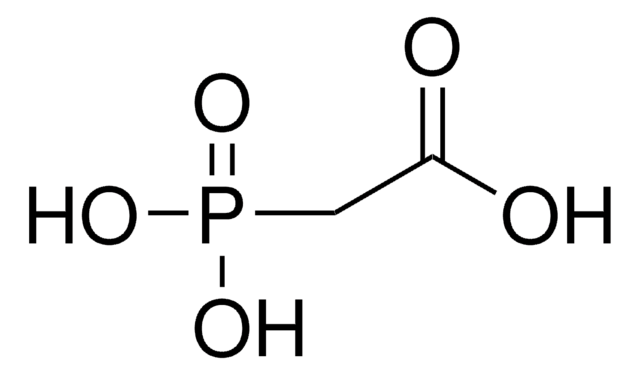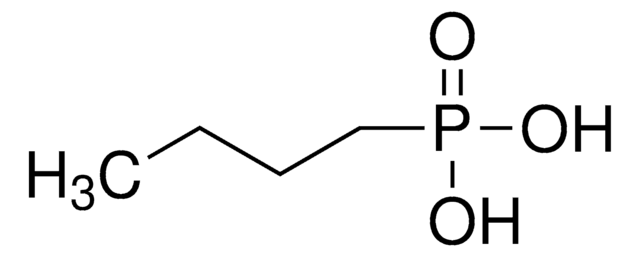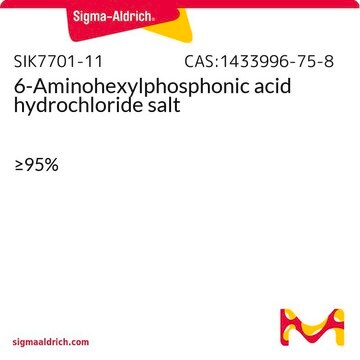About This Item
Recommended Products
Assay
97%
form
solid
mp
98-104 °C
SMILES string
OC(=O)CCCCCP(O)(O)=O
InChI
1S/C6H13O5P/c7-6(8)4-2-1-3-5-12(9,10)11/h1-5H2,(H,7,8)(H2,9,10,11)
InChI key
SYFTUNQVCGSBOV-UHFFFAOYSA-N
Related Categories
General description
Application
Storage Class Code
11 - Combustible Solids
WGK
WGK 3
Flash Point(F)
Not applicable
Flash Point(C)
Not applicable
Personal Protective Equipment
Choose from one of the most recent versions:
Certificates of Analysis (COA)
Don't see the Right Version?
If you require a particular version, you can look up a specific certificate by the Lot or Batch number.
Already Own This Product?
Find documentation for the products that you have recently purchased in the Document Library.
Customers Also Viewed
Articles
Thin, lightweight, and flexible electronic devices meet widespread demand for scalable, portable, and robust technology.
Recent research highlights tunable properties of inorganic nanoparticles, driving interest in optoelectronics.
Self-assembled monolayers (SAMs) have diverse applications; article compares benefits of alkylthiolates on gold SAM systems.
Our team of scientists has experience in all areas of research including Life Science, Material Science, Chemical Synthesis, Chromatography, Analytical and many others.
Contact Technical Service









